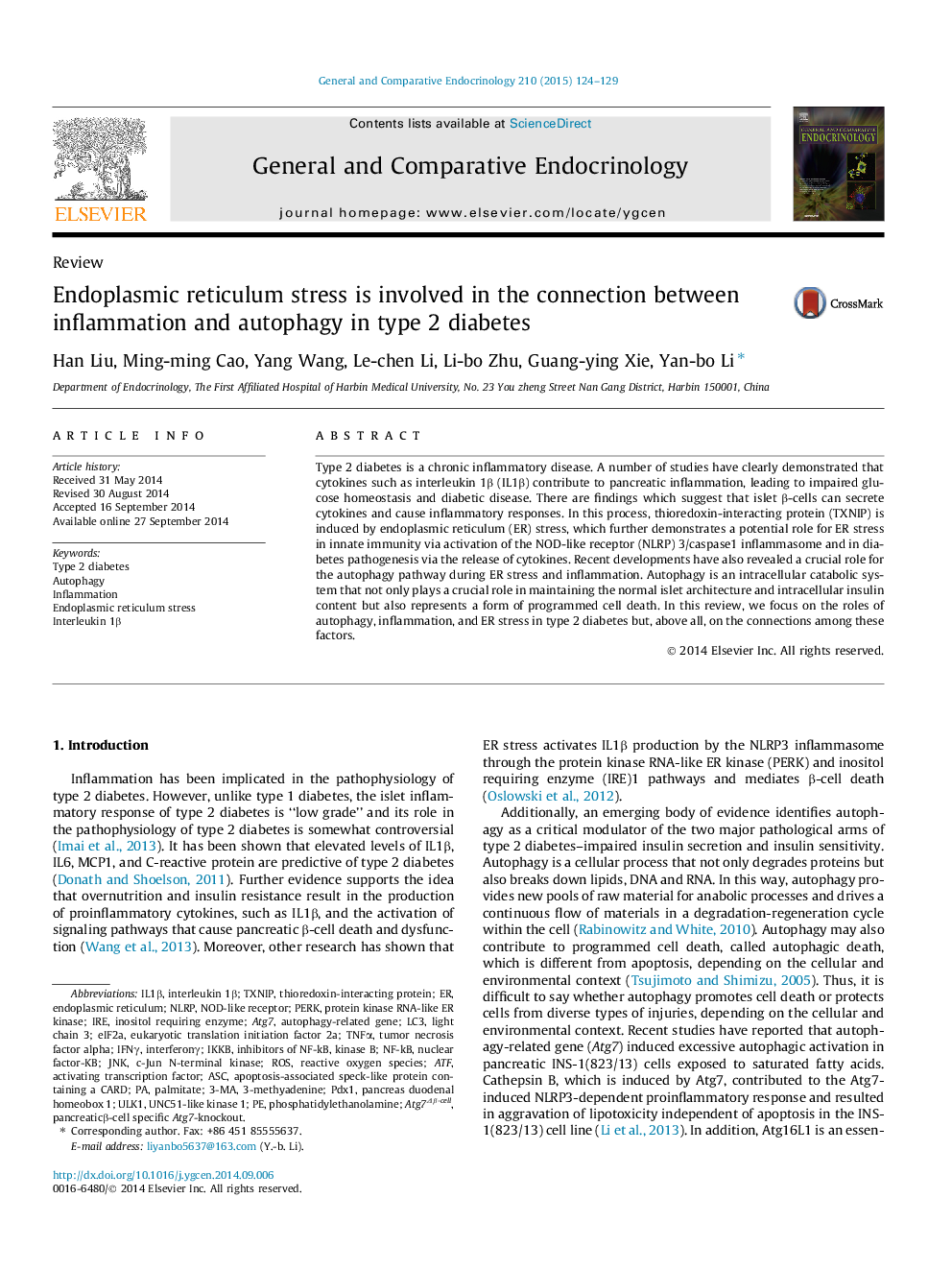| Article ID | Journal | Published Year | Pages | File Type |
|---|---|---|---|---|
| 2800054 | General and Comparative Endocrinology | 2015 | 6 Pages |
•Prolonged inflammation can exacerbate tissue damage which is implicated with T2D.•Autophagy as a critical modulator in the inflammatory process of T2D.•ER stress is essential for both the formation of inflammation and autophagosome.•Thus, we focus on the roles of autophagy, inflammation, and ER stress in T2D.
Type 2 diabetes is a chronic inflammatory disease. A number of studies have clearly demonstrated that cytokines such as interleukin 1β (IL1β) contribute to pancreatic inflammation, leading to impaired glucose homeostasis and diabetic disease. There are findings which suggest that islet β-cells can secrete cytokines and cause inflammatory responses. In this process, thioredoxin-interacting protein (TXNIP) is induced by endoplasmic reticulum (ER) stress, which further demonstrates a potential role for ER stress in innate immunity via activation of the NOD-like receptor (NLRP) 3/caspase1 inflammasome and in diabetes pathogenesis via the release of cytokines. Recent developments have also revealed a crucial role for the autophagy pathway during ER stress and inflammation. Autophagy is an intracellular catabolic system that not only plays a crucial role in maintaining the normal islet architecture and intracellular insulin content but also represents a form of programmed cell death. In this review, we focus on the roles of autophagy, inflammation, and ER stress in type 2 diabetes but, above all, on the connections among these factors.
